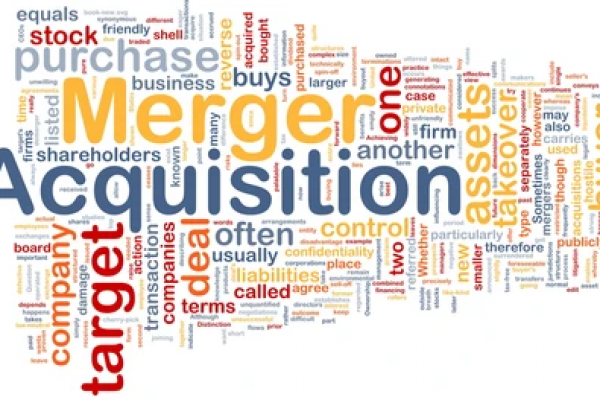A virtual data rooms (VDR) is a secure cloud platform that allows confidential enterprise documents to be managed and shared. The majority of traditional VDR platforms are used for financial transactions like mergers and acquisitions (M&A). Modern VDRs, on the other hand, are frequently far more comprehensive, user-friendly, and have greater security and compliance certifications. They are created to satisfy the requirements of any industry, line of business, or use case.
Many individuals believe that data rooms are primarily used for mergers and acquisitions. But this is not true, the virtual data rooms are more than just an M&A tool. Here are a few of the most common use cases:
1. M&A
One of the most common uses of VDRs is in mergers and acquisitions (M&A). They’re used by investment banks, law firms, accounting companies, and corporate leaders to talk about, handle, and assess sensitive information about a seller’s business. They may keep track of all activity and comments on these papers, download and print them for their records, and restrict who has access to them.
With just a single vendor and buyer, deals can be tiny. Alternatively, agreements can be huge and complicated, involving hundreds of stakeholders and transaction values in the billions of dollars. The stakes are significant regardless of the magnitude of the deal. The utmost level of security is required for these sensitive materials. Any data breach could jeopardize a transaction and harm the seller’s business. As a result, organizations must constantly monitor and manage the M&A process to assure success.
2. Capital Fundraising
Virtual data rooms are frequently used for fundraising. Companies that want to raise money by offering equity or debt have a significant need to control and distribute sensitive data. A start-up could approach dozens of potential investors.
They must keep track of who has access to what data, papers, and financial statements? This data frequently pertains to present & future investors. Any mishandling of confidential information might result in delays and restrictions on future financings. Owners have complete control over who has access to documents or data in virtual data rooms, and they may interact and collaborate on all parts of the financing process.
3. Product Launch and Marketing Assets
A corporation must communicate marketing plans and strategies with vendors, partners, and distributors before launching a commercial product, such as a new phone or shoe. They could discuss trade secrets including branding strategy, ad campaigns, and product sales projections. This is to ensure that the product launch is well-prepared and executed. A product specification leak could derail a launch or offer competitors an advantage. The safest and most orderly way for all business partners to collaborate on marketing materials, pricing schemes, and product availability is through the use of a VDR.
4. Partnerships and Strategic Alliances
A partnership or alliance is formed when two or more organizations come together to pursue common business goals. Also, marketing, sales, research and development, and manufacturing are some of the areas in which they may specialize. Partnerships frequently have a high level of coherence, which includes exchanging secret information, plans, and product roadmaps.
Collaboration is an essential component of any successful business endeavor. As well as, large enterprises or startups aiming to build multi-million dollar partnerships are examples of the types of companies that develop partnerships. Also, the most efficient approach for organizations to collaborate, communicate, and share information is to use a virtual data room.
5. Commercial Contracts
Commercial contracts are also utilized in a wide range of circumstances. Daily, businesses must deal with vendor and supplier contracts. An MSA is a common format for agreements. Both parties share sensitive information about the contract and its terms, so these deals can be quite complicated. The documents in these situations contain sensitive and confidential information that must be treated with care.
An RFP (request for proposal) or RFQ (request for quote) is a formal document that a corporation uses to solicit offers for goods and/or services from vendors or suppliers. The requirements and parameters of a deal are outlined in an RFP. Also, it includes guidelines for responding to it by making an offer. An RFQ might be very brief or supplemented with a more extensive RFQ. The data room is used to receive responses in either circumstance. As well as, a modern VDR provides enterprises with user-friendly, secure tools that allow them to communicate, collect, and manage documents. A modern VDR can provide a unique connection for each party to use to send their responses without interfering with the responses of other parties.
Firmsdata is one of the best virtual data room providers in India. Book a Demo now!
6. NDAs (Non-Disclosure Agreements)
Non-Disclosure Agreements are common contracts that two parties sign before disclosing secret information. They can be difficult to handle because editing and negotiating an agreement between two parties takes time. Also, a typical VDR serves as a simple repository for fulfilled contracts. With a few simple clicks, a modern VDR may develop automated workflows for NDAs, including eSignatures, expediting the process.
7. Intellectual Property Management
When businesses create or develop intellectual property, they must safeguard it against theft. Trademarks, trade secrets, patents, licenses, and designs are among the most sensitive documents that require a high level of security and protection. To land lucrative contracts, it may be necessary to share confidential information. As a result, intellectual property owners should take aggressive steps to protect their content and data.
8. Litigation, Legal Holds, e-Discovery
When a company is involved in a lawsuit, it must conduct research and gather information about the case. As well as, any search can be time-consuming and costly, and the personnel participating in the process must be certain that all papers and data are secure. A legal hold, such as eDiscovery, is a process in which corporations are legally compelled to preserve the material. As well as, a modern VDR can be used to store and share data with legal counsel in any pending case safely and securely.
9. Financial Audit
A financial audit is an examination of a company’s or an individual’s financial statements, which are usually done quarterly or annually. Also, the auditor double-checks financial statements for accuracy. Audits reveal everything from revenue generated to expenditures incurred. As a result, it’s critical to keep confidential papers and sensitive information secure because auditors will require access to them to complete the audit.
10. Talent Acquisition, Employee Onboarding, and Offboarding
The recruitment and hiring of employees is the emphasis of talent acquisition. Onboarding refers to the process of orienting new employees to the organization, whereas offboarding refers to the process of terminating employees. As well as, each of the three procedures comes with its own set of documentation. HR management must keep all paperwork and contracts for a specific employee in one folder. All of these important documents can be collected and stored in a VDR for an infinite period.
Modern virtual data room providers have made considerable breakthroughs. Traditional VDRs were created for a certain group of investment banking customers. However, the current generation of VDRs is intended for a wide range of businesses and industries. Also, they aren’t simply for people who work on mergers and acquisitions or fundraising. A modern VDR would be beneficial to any company that transfers sensitive information. For any company or organization to prosper, a modern virtual data room is a must-have tool. With a modern VDR, businesses can effortlessly cooperate and secure their content while saving money.





